It goes without saying that LGBTQ+ people are amazing. We are. I’ve decided as such and my word is gospel at this point. That being said, I wouldn’t be allowed to say that if it were not for some of the bravest people out there who have made an impact on LGBTQ+ rights and who just happen to not be LGBTQ+ themselves. These people are allies.
Allies are individuals who support and advocate the rights and equalities of others who are marginalised and discriminated against in society. In this instance, heterosexual (straight) people who advocate the rights of LGBTQ+ people.
Over the next few blogs I will be highlighting key names across the world who are making their voices heard on behalf of the marginalised. In today’s issue, we’re looking at law reforming allies: Alice Nkom and Lord Wolfenden.

Alice Nkom
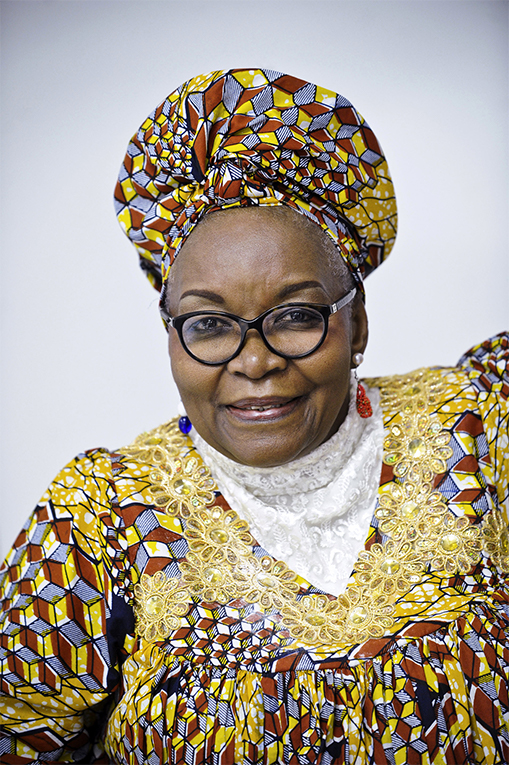
Alice Nkom was born in Poutake, Cameroon on the 14th January 1945. She is a Cameroonian lawyer based in the city of Douala. In 1969, at the age of 24, Nkom became the first black French-speaking woman called to the bar in Cameroon.
Since then, Nkom has continually worked towards the decriminalisation of homosexuality in Cameroon. Many advocates have been abused, tortured and even killed in the fight for LGBTQ+ rights and Nkom has often faced death threats and threat of imprisonment. Despite this shecontinues to fight against oppressors for a better, safe future for Cameroonian LGBTQ+ individuals.
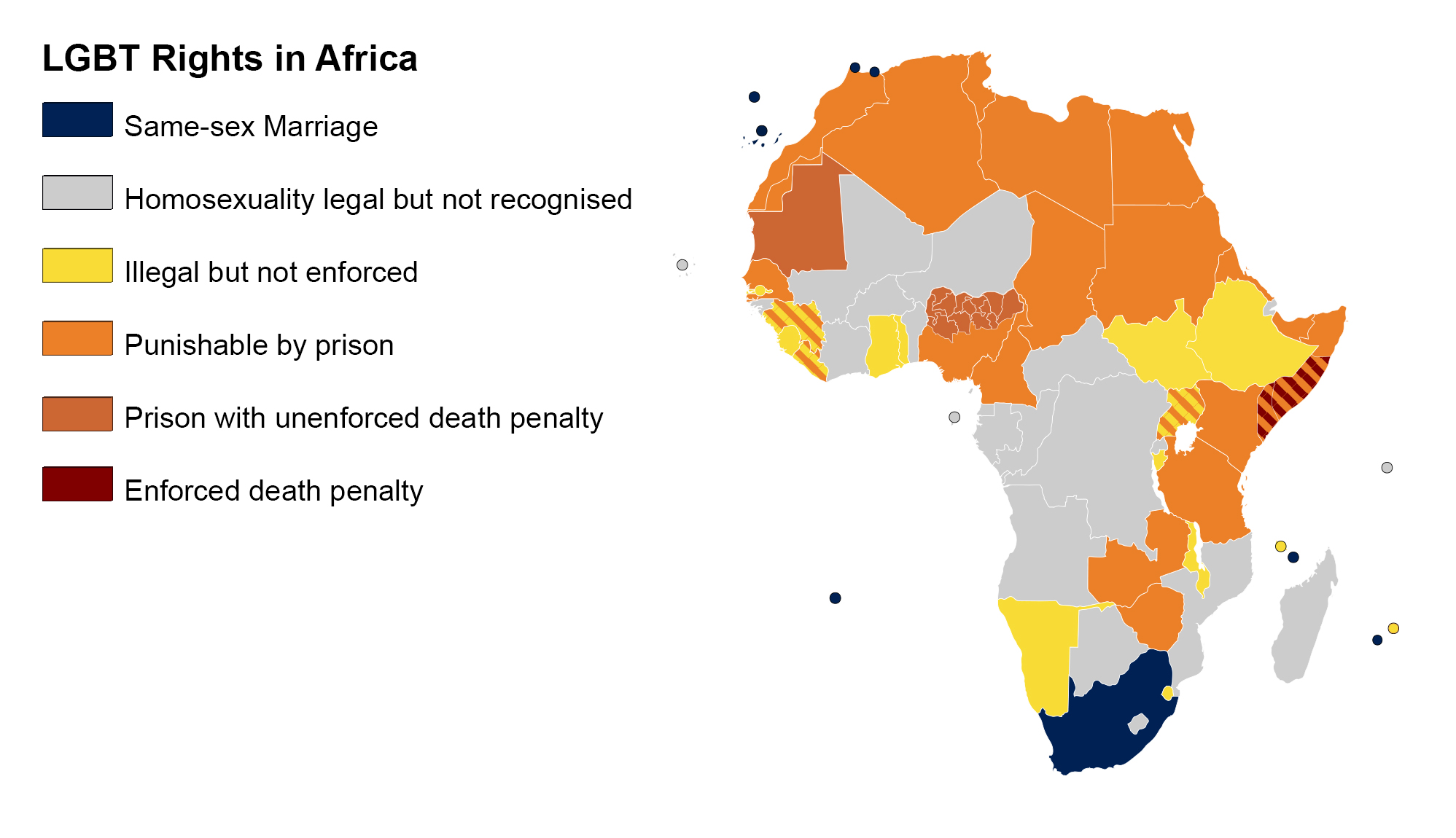
Across Africa, 34 countries continue to criminalise homosexuality, from imprisonment to the death penalty, and while some African countries continue to reform the laws which persecute LGBTQ+ people, Cameroon continues to criminalise sex between men and sex between women with a penalty of between six months and five years imprisonment, and a fine.
In 2003, Nkom founded the Association for the Defence of Homosexuals (ADEFHO); a non-profit pro-bono advocacy group for the defence of people accused of being LGBTQ+ (actual or assumed) which has been praised and funded by the United Nations.

Nkom’s most famous case occurred in 2005 when she defended the Yaoundé 11, a group of men who were arrested on charges of assumed homosexuality. The men were sentenced to a years imprisonment, for which the United Nations called it a violation of human rights law.
A persistent campaigner and advocate for LGBTQ+ rights, Nkom called on others to join her in the fight against the country’s anti-gay laws, in March 2015, saying “If we unite our efforts and our resources, we will get the Supreme Court to join the other supreme courts in the world to firmly condemn the use of Article 347 as a basis for legal action or verdicts.”
In recognition of her work, Nkom has received awards for her humanitarian and legal work in human rights by Amnesty International. In 2006 and 2013 she was also the keynote speaker at the Human Rights conference.
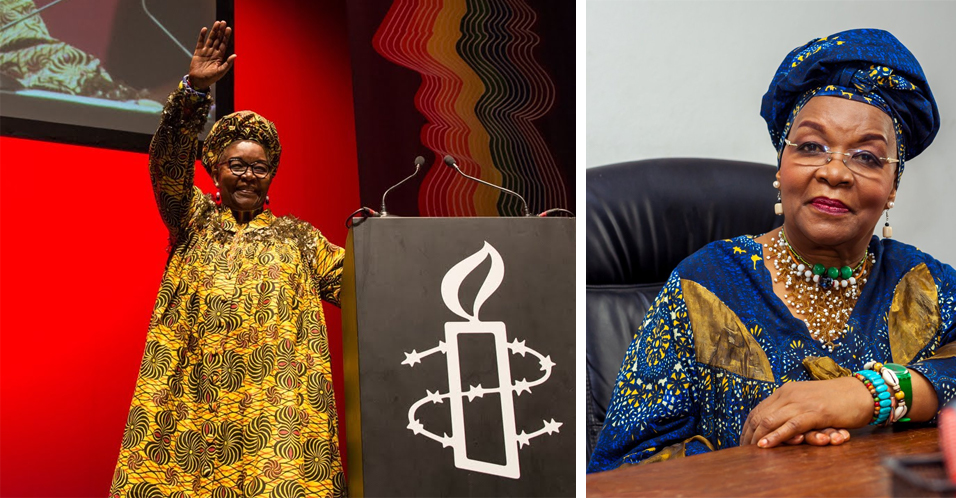
Today, at 76 years of age, Alice Nkom continues to fight for LGBTQ+ rights and her work has seen a reduction in LGBTQ+ prosecutions and convictions in Douala.
Sadly, Cameroonian law is still stuck in the past and in 2020, following Gabon’s remarkable decision to decriminalise same-sex activity, Cameroonian politician Pierre Mila Assouté vocalised his objection to this and proclaimed “we must not legalise homosexuality in Cameroon”. Thank goodness we have Alice and ADEFHO fighting this ignorance!
For more information on the development of LGBTQ+ law reform in Cameroon visit the Human Dignity Trust.
Lord Wolfenden
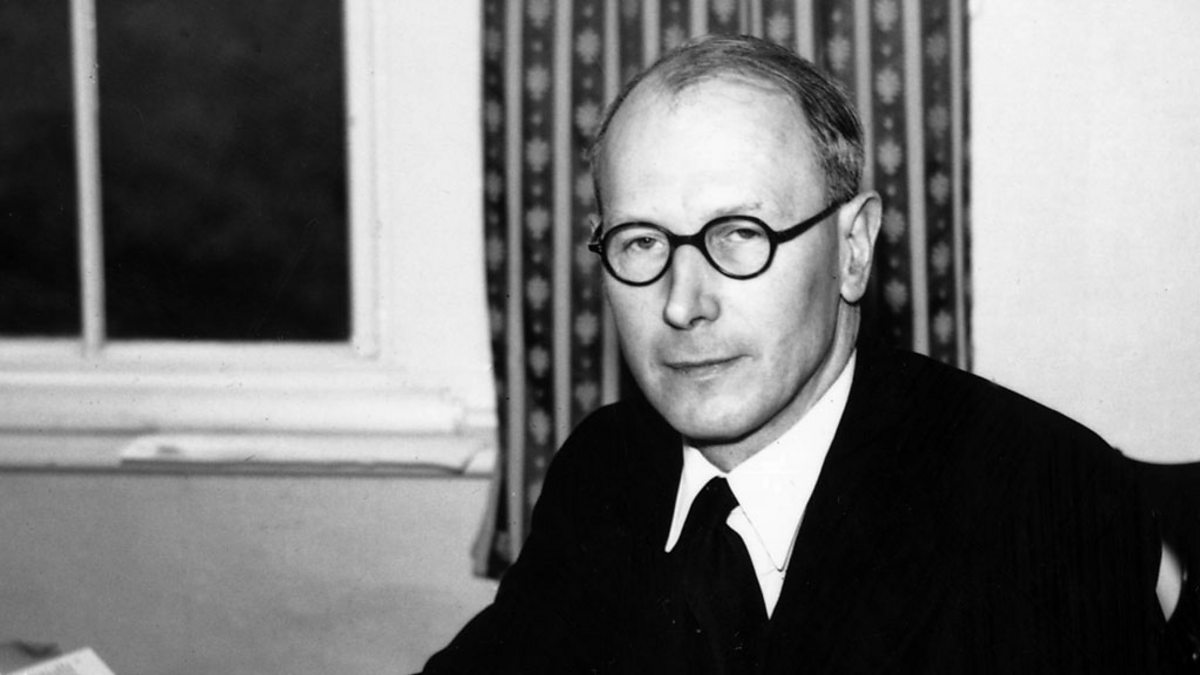
John Frederick Wolfenden, known as Jack, was born June 26th, 1906. He attended Oxford University on a scholarship and would later teach philosophy there. In later years he became headmaster of two public schools in Rutland and Shropshire and was often commended on his positive emotional dealings with youth and reassuring them of their troubles.
During WWII, he would direct the Air Training Corps, and in 1942 was appointed Commander of the Order of the British Empire (CBE) for his war work. In 1950 he became Vice Chancellor of the University of Reading, and in May 1956, he was knighted. For the purposes of this blog we are going to refer to him as Lord Wolfenden because otherwise it may get confusing.*
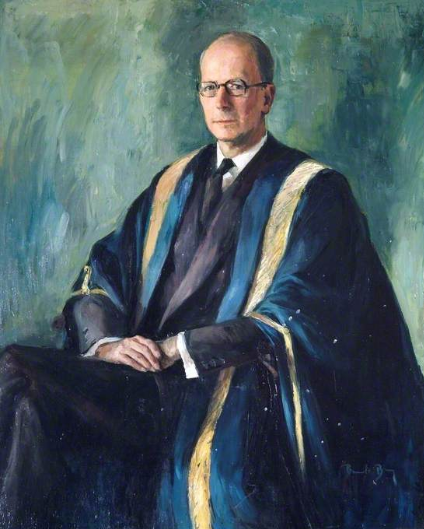
In 1954, the Wolfenden committee, chaired by Lord Wolfenden himself, was pulled together to review the laws on homosexual activity. The committe was made up of men and women from different backgrounds including medical and legal professionals, political figures and senior religious officials.
The 3-years study would take over 200 testimonials from gay men and representatives from professional bodies including law enforcement, psychiatrists and religious leaders. The purpose was to get a greater understanding of homosexual practices, activities, behaviour, lifestyle, etc., and assess what was fact and what was prejudicial ignorance – my words, not theirs.
But to understand why this came about, first we must go back in history.
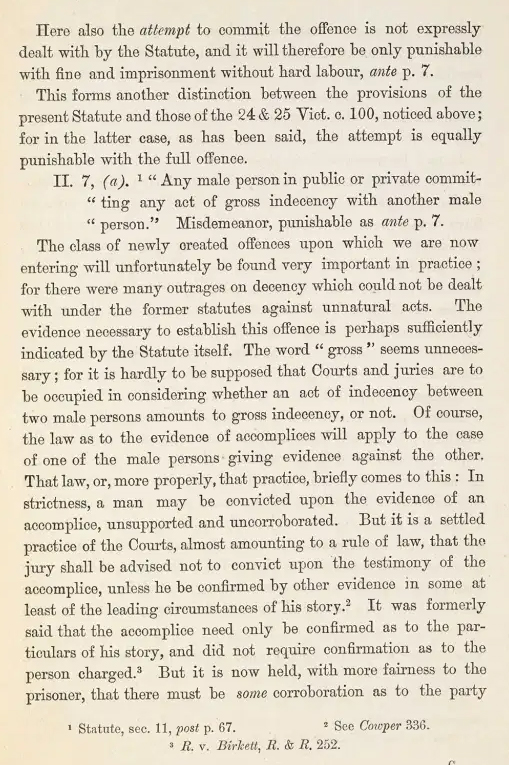
In 1885, homosexuality was criminalised (on top of all the other antihomoseuxaluty laws) in the UK. Section 11 declared homosexual acts between men (consenting or otherwise) punishable by imprisonment. **
Following WWII, the ludicrous law, the Criminal Law Amendment Act (1885), saw a staggering increase in men being prosecuted by the act. Over a thousand men were imprisoned after convictions of alleged sexual relations with other men, regardless of whether it was in the privacy of their own home or not. Regardless of whether they were gay or not!
As the number of prisoners grew, an enquiry was called on the legality of homosexuality and prostitution. The two are not necessarily linked but, at the time, were seen as major influences on the breakdown of society and traditional family morals. And that is where Lord Wolfenden and co. come in. So, what came of the report?
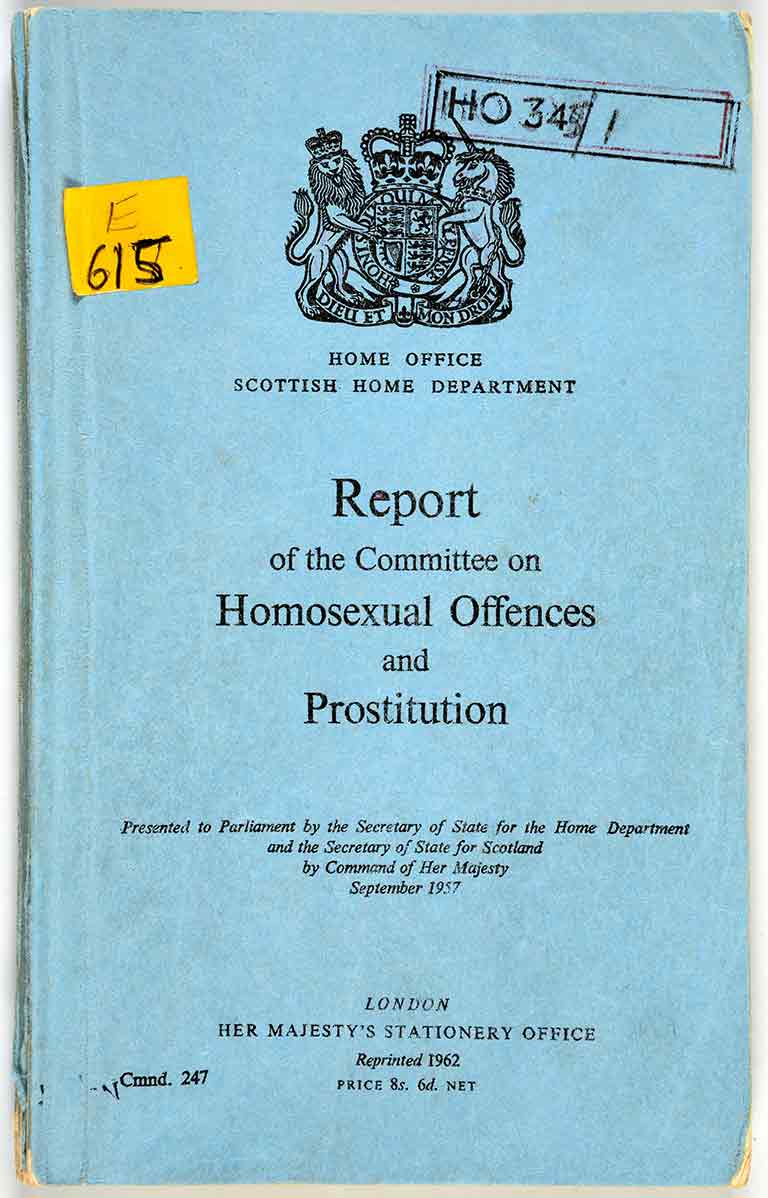
In September 1957, the report was published, and recommended that there ‘must remain a realm of private morality and immorality which is, in brief and crude terms, not the law's business'. In short, what men do in the privacy of their home is none of your business.
As you can imagine, not many people were pleased with the outcome and in spite of this, Lord Wolfenden would appear on numerous TV segments and in various newspapers advocating for the law to be changed.
This was tremendous victory and gay men across the country were elated at the prospect of a ‘normal life’, free of persecution. Alas, as with all LGBTQ+ victories, it wasn’t that simple, and the report was disregarded by parliament.
It would take another 10-years and multiple failed attempts, before the law was (slightly) reformed to allow consenting men over the age of 21 to have intimate relations.
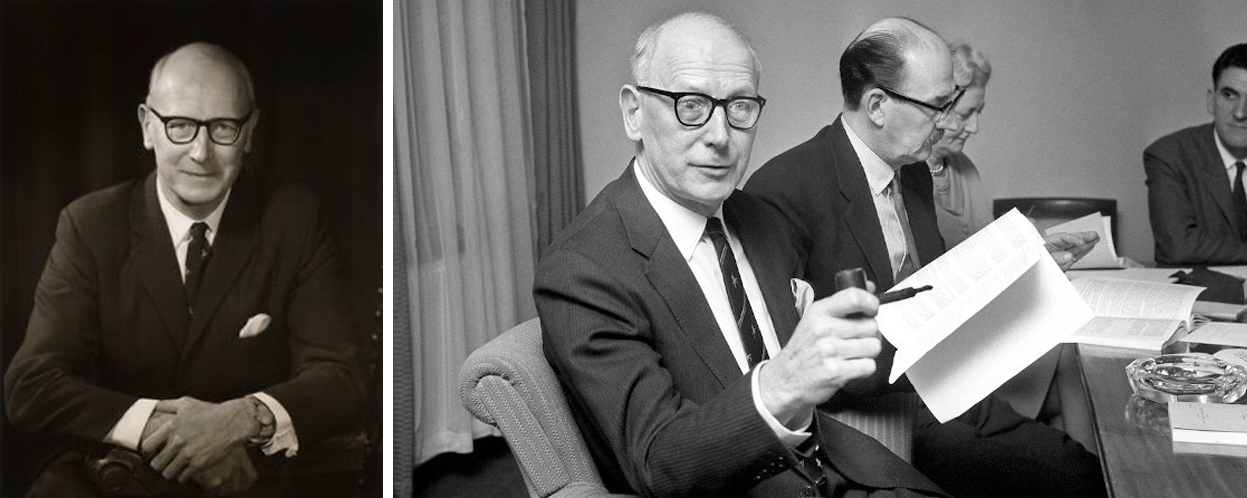
That being said, I don’t want to downplay the significance of Lord Wolfenden and the report. Without Lord Wolfenden, the Wolfenden committee (bar you James Adair, you nasty man you), the 200+ testimonials and Wolfenden’s recommendations, homosexuality would not have been decriminalised and the fate of LGBTQ+ people could still be in the dark ages.
And what about the prostitutes I hear none of you ask? Well, though it was not illegal at the time, and still isn't, the report did believe that, while the work may continue, it must be taken off the streets and the Street Offence Act (1959) was enforced.
Lord Wolfenden passed away in 1985, aged 78. His legacy is plain and simple: without him and 13 others, again not you James Adair, LGBTQ+ equality would not be where it is today, if at all. Their Government sanctioned research finally brought to light the facts about the homosexual lifestyle and shattered the preconceived notions that people had concocted of a broken society. They understood that gay men were not deviants and that society had got everything wrong. And while LGBTQ+ people were still subject to abuse for many years, and still are, it was a great impact for LGBTQ+ freedom.

Both these allies have something in common: neither the time nor the place is an excuse for wilful ignorance. Alice Nkom is threatened with violence and imprisonment in a country that is fighting with sheer intensity to maintain LGBTQ+ persecution, while Lord Wolfenden was advocating the rights of gay men during a time when he could have lost his family, friends, his career and so much more.
These two Queeroes are role models of the allies I hope anyone could be. I hope their stories empower you to do the right thing and continue to support those who need you most. Should you wish to seek further guidance on being an LGBTQ+ ally please contact lgbt-staff@bath.ac.uk.
-
* Even I was getting confused and I wrote this thing!
** It was not illegal to be lesbian. It wasn’t tolerated but it was not illegal.
Respond
